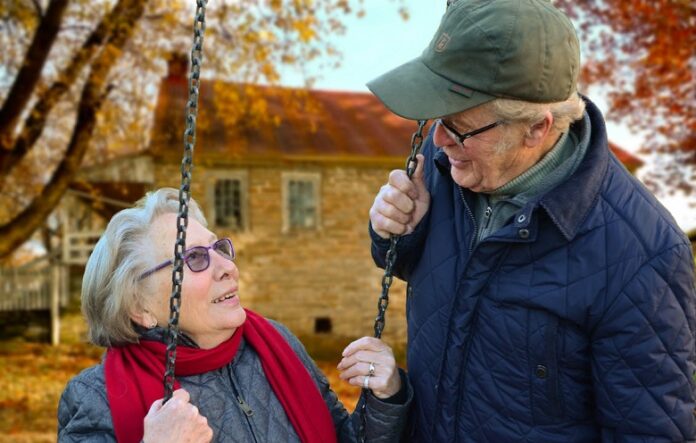Aging is an inevitable part of life. For elderly individuals, it often comes with a range of physical and emotional challenges. However, with the right approach, it’s possible to mitigate some of the symptoms of aging and enjoy a fulfilling and comfortable life. Here are five valuable tips to help elderly people alleviate the symptoms of aging. From the potential benefits of bioidentical hormone replacement therapy to the importance of staying physically active and socially engaged, these insights can make a significant difference in your well-being and quality of life.
1. Bioidentical Hormone Replacement Therapy (BHRT)
Table of Contents
Bioidentical hormone replacement therapy is a medical approach that can help alleviate various symptoms of aging, particularly those related to hormonal imbalances. As people age, hormone levels, such as estrogen and testosterone, often decline, leading to symptoms like hot flashes, low energy, and mood swings. BHRT involves replacing these hormones with bioidentical hormones that are structurally identical to those naturally produced by the body.
Consulting a healthcare provider for BHRT can help rebalance hormone levels and reduce the discomfort associated with aging. Consider doing a quick Google search for “bioidentical hormone replacement therapy near me,” in order to find provider to inform you about the process. BHRT has shown potential benefits in improving energy levels, mood, cognitive function, and even bone density.
2. Regular Physical Activity
Staying physically active is crucial for elderly individuals to maintain muscle strength, flexibility, and overall well-being. Regular exercise can help alleviate symptoms of aging like muscle atrophy, joint stiffness, and a decrease in balance.
Activities like walking, swimming, or low-impact aerobics can improve cardiovascular health and help in managing weight. Strength training exercises, even with light weights or resistance bands, can prevent muscle loss and maintain bone density. Moreover, flexibility exercises, such as yoga or stretching routines, can reduce joint stiffness and improve mobility.
Elderly people should always consult their healthcare providers before starting a new exercise regimen to ensure that it’s safe and suitable for their individual health needs.
3. Mental Stimulation and Social Engagement
Aging often brings cognitive changes, but staying mentally stimulated and socially engaged can help alleviate these symptoms. Activities like reading, puzzles, and learning new skills can keep the mind sharp and maintain cognitive function.
Social engagement is equally important, as it prevents feelings of loneliness and depression, which can often accompany aging. Participating in community groups, clubs, or volunteering can provide a sense of purpose and connection.
Additionally, regular conversations with friends and family members, as well as engaging in group activities, can help improve overall mental and emotional well-being. It’s vital for elderly individuals to remain an active part of their communities and maintain a social support system.
4. A Balanced Diet and Hydration
Nutrition plays a critical role in alleviating the symptoms of aging. A balanced diet that is rich in nutrients can help maintain energy levels, support immune function, and manage weight. Focus on a variety of fruits and vegetables, lean proteins, whole grains, and healthy fats.
Adequate protein intake can prevent muscle loss, while fiber-rich foods can support digestive health. Proper hydration is equally important. Dehydration can lead to fatigue, confusion, and other health issues.
Elderly individuals should aim to drink enough water throughout the day. Additionally, discussing dietary needs with a healthcare provider or a registered dietitian can help create a personalized nutrition plan that addresses specific health concerns and dietary restrictions.
5. Regular Health Screenings and Check-Ups
Preventive healthcare is essential in managing the symptoms of aging and detecting potential health issues early. Regular health screenings, such as blood pressure checks, cholesterol assessments, and bone density scans, can help identify and manage age-related conditions like hypertension, heart disease, and osteoporosis.
Elderly individuals should maintain a schedule of regular check-ups with their primary care physicians and specialists. These appointments can help monitor health, adjust medications, and ensure that any emerging health concerns are addressed promptly. Staying proactive in healthcare is a crucial step in aging with grace and managing age-related symptoms effectively.
Aging may bring various challenges, but with the right strategies, elderly individuals can alleviate the symptoms of aging and enjoy a high quality of life. From considering bioidentical hormone replacement therapy to staying physically active, mentally stimulated, socially engaged, and well-nourished, these tips provide a holistic approach to aging gracefully.
By prioritizing their health, seeking proper medical guidance, and maintaining a proactive stance on well-being, elderly individuals can embrace their golden years with vitality and comfort. Aging is a part of life’s beautiful journey. It’s a journey that can be navigated with grace and resilience.











